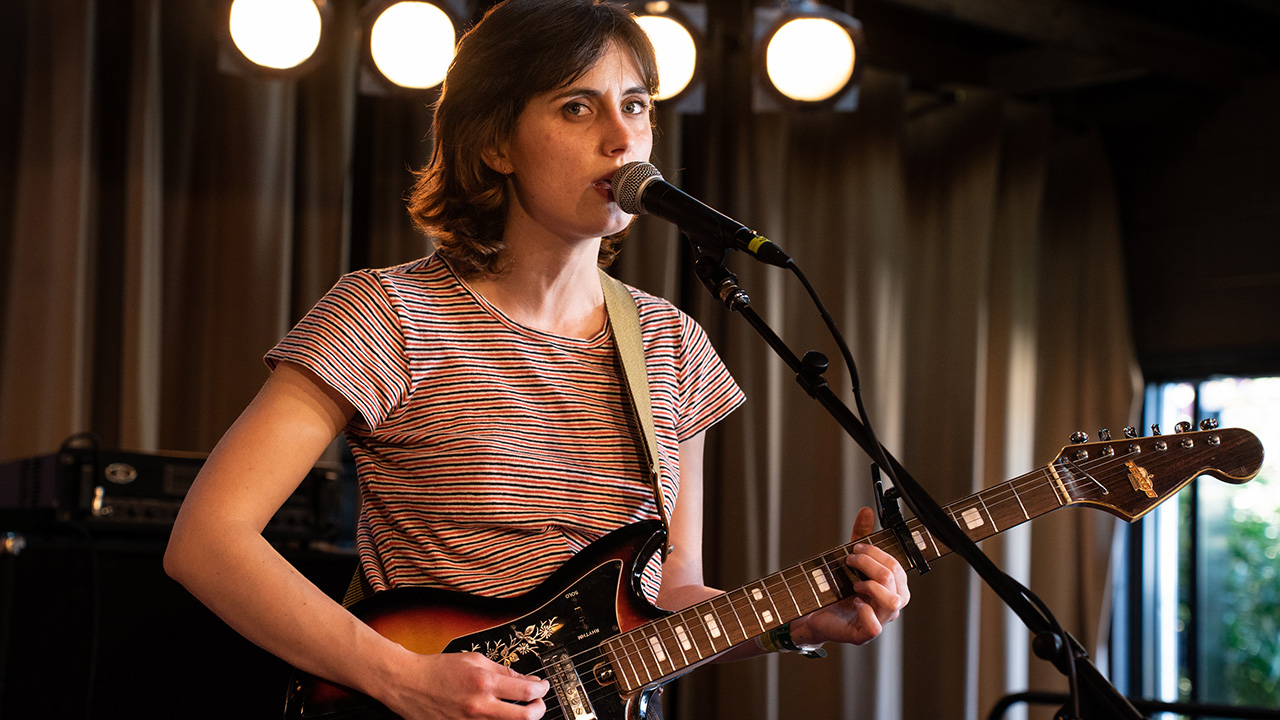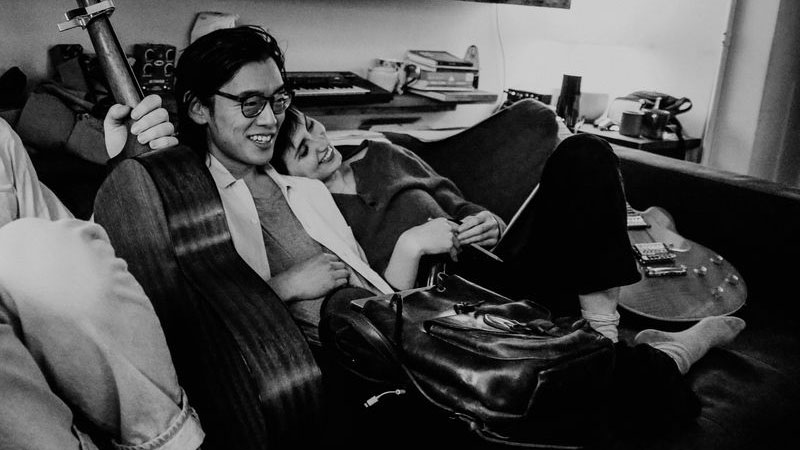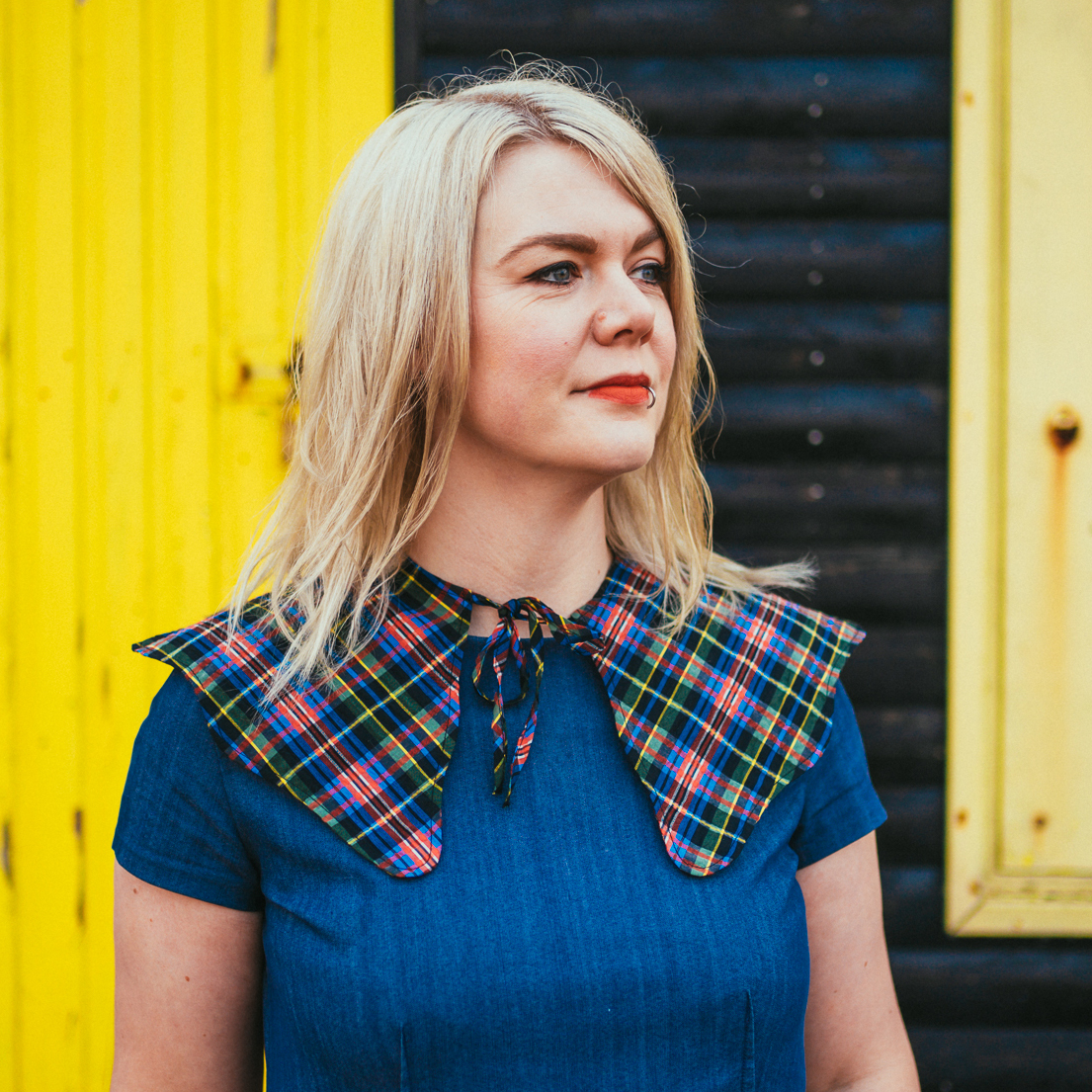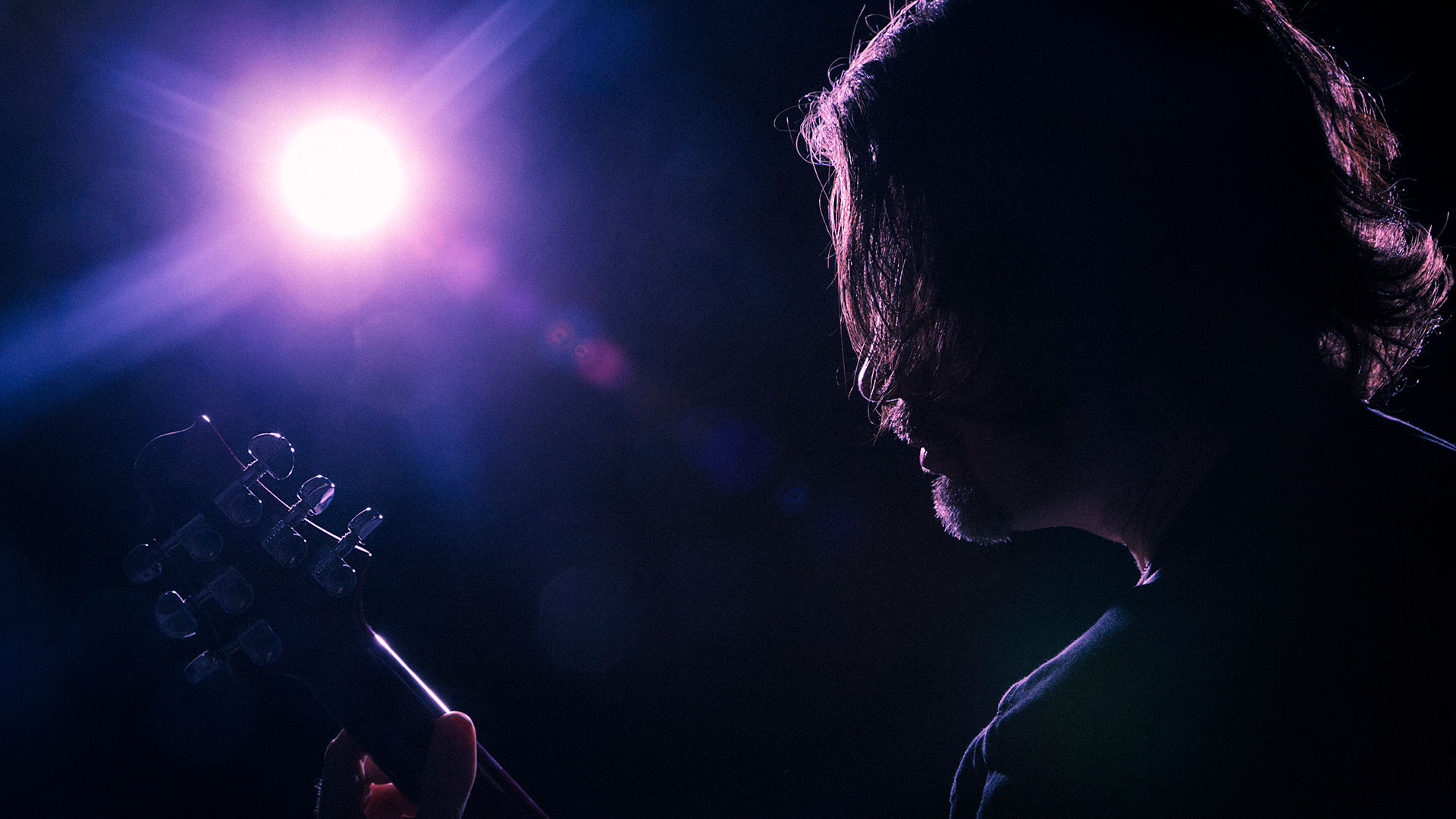“The first song I learned was The Beatles’ Blackbird. I’m still a pretty good fingerpicker, if nothing else!” Katy Kirby on jumping into guitar at the deep end – and why she made new album Blue Raspberry as uncool as possible
The Texas singer-songwriter is winning plaudits for her brand of wry indie-folk. She discusses an especially thrifty Teisco find, chasing a “salty” sound and how a kitsch instrumental curio changed the way she writes on guitar

All the latest guitar news, interviews, lessons, reviews, deals and more, direct to your inbox!
You are now subscribed
Your newsletter sign-up was successful
Songwriting pair Katy Kirby and Logan Chung are in their friend’s Nashville apartment on a cold winter afternoon when they dial into our call. It’s in this sunlit space where Kirby wrote a lot of her new record, Blue Raspberry, making the journey down on the Amtrack from upstate New York where her girlfriend lives.
Skeletons of the songs bared their bones on fellow Southerner Waxahatchee’s 2021 tour, where Kirby would steal away after her opening slot. “We would do our set, then there would be an hour and a half where Waxahatchee was playing,” she says. “We would watch their set a lot, but a bunch of times I would go to our little van and work. It became productive to use that adrenaline boost.”
Then there’s that time during lockdown when the pair lived with a man and his 21 Omnichords. The Nashville Omnichord Supply Company is a project from self-pegged “sonic sherpa” Ross Collier, who repairs and restores the quirky electronic instruments.
This unorthodox arrangement goes some way to explaining why Kirby weaves more intricate chord progressions and melodies into the new work (aside from her obsession with Glen Campbell’s Galveston). “I’m a pretty limited guitar and keyboard player because I never learned chords in a bunch of different keys,” she says, adding as a joke: “I’m a capo guy, right?
“When I picked up an Omnichord I could suddenly pop over to an E flat from my C chord. That unlocked a bunch of things so I wound up continuing to write songs with 18 chords in them. Omnichords are underrated as songwriting instruments because of those happy accidents.”
When Kirby talks about not learning certain chords or guitar refrains, that’s not down to lack of want. Growing up in an evangelical Christian family in small-town Texas, those are not the only cultural experiences she missed out on.
When Chung explains how he first got into guitar, he says: “My parents loved classic rock.” Kirby quickly quips: “All of the things I’d never heard growing up!” Her own introduction came when her dad brought home a Junior Yamaha for her, and she began tentatively exploring chord shapes. Soon she graduated to the family Gibson Hummingbird, which her brother still plays to this day.
All the latest guitar news, interviews, lessons, reviews, deals and more, direct to your inbox!
“The first song I learned was The Beatles’ Blackbird,” she says. “When you learn that song, you learn chords, inversions, different shapes and fingerpicking, all at once. I’m still a pretty good fingerpicker, if nothing else!”
Meanwhile, Chung’s parents had spotted his propensity for music, encouraging his attempts in the church choir and putting him through violin and piano lessons. It’s these classical capabilities that he credits with his own ease on the instrument now.
“I remember knowing skills from the violin that immediately translated and knocked down walls,” he says. “I never felt I had to learn strumming patterns, picking patterns, chord shapes or inversions, because it was there.”
The pair met at school in Nashville but didn’t hang out until college, when they began crossing over in creative projects. Chung reminds her: “I played every instrument in your band at some point!”

Mutual friend Alberto Sewald is the third of Kirby’s triumvirate. A “savant in the engineering world,” he’s the engineer behind Kirby’s acclaimed 2019 debut Cool Dry Place; so when work began on the follow-up, he was the logical choice.
“It’s rare to find people who are great engineers that are as patient as he is, with me being like, ‘It needs to be saltier!’” she says. “Usually, engineer boys get super-frustrated about that.”
We went to a Guitar Center and Berto was like, ‘That’s a really nice Teisco they’re selling for $250.’ And Berto is a God-tier Craigslist used gear finder!
Katy Kirby
The intricacies of Blue Raspberry are no mean feat, with orchestral gestures built into this new sonic palette from another collaborator, Nashville buddy Rowan Merrill. “The title track is a completely different sonic environment,” Chung says. “It's been inverted and there are these inorganic textures.”
Once again, such avant-garde approaches are triggered by another interesting instrumental choice in the form of a Theravox – a theremin synth sort of deal. “It’s much more controllable,” assures Kirby. “You can modulate the sine wave that’s usually from a theremin, so it has that tonal flexibility.”
Her recent guitar of choice is a Teisco. “We went to a Guitar Center and Berto was like, ‘That’s a really nice guitar they’re selling for $250.’ And Berto is a God-tier Craigslist used gear-finder!”
Chung was also ready to make an intentional purchase, heading to Fanny’s House of Music and picking up a Hofner Verithin. Meanwhile, on his pedalboard, he’s thinking mainly about gain and break-up.
There’s an element of wanting to be cool and it feels pitifully rare to hear an artist go straight after beauty
Logan Chung
“I’m using several different pedals to be a little bit louder and get a little bit more grip. I’ve got a very basic Boss tremolo and the Attack Decay by Electro-Harmonix.” Kirby notes the output is Chung’s “secret sauce.”
On Blue Raspberry, Kirby has happily shifted into a state of acceptance around making “objectively beautiful music,” propelled by moments in the studio with Sewald and Chung.
Chung reports: “I remember a conversation during the recording of Salt Crystal and realizing, ‘These are beautiful songs!’ There’s an element of wanting to be cool and it feels pitifully rare to hear an artist go straight after beauty.”
“With a capital B,” interjects Kirby.
Of course, artists like Angel Olsen have staked a claim on such yearning cadences and tender extremities; but for Kirby, it’s about losing the shackles of what’s deemed credible and heading out onto a path of her own making. As she puts it: “In a songwriting sense, I had never played it less cool!”
Much like open-hearted songwriter Lomelda, Kirby possesses an aptitude for emotional clarity, whether that’s in her music or her faith in the future. “There are moments on the album when I’ve listened back and I’m just like, ‘Wow, that’s absolutely beautiful.’
“There are others where I’m like, ‘That is a lot!’ But you just have to believe in yourself hard enough – and make other people believe it, too.”
- Blue Raspberry is out now via ANTI- Records.
Cheri Amour is a writer, editor and broadcaster intent on amplifying the voices of women and non-binary artists in print, online and on air. During her twenties, she played lead guitar in a touring two-piece, sharing the stage with The Slits and John Peel-approved punks The Nightingales. Formerly Deputy Editor at TGA Magazine, Cheri headed up its Tech section pouring over pedals with everyone to indie icon Debbie Smith (Echobelly/Curve) to multi-instrumentalist Katie Harkin (Sleater Kinney/Waxahatchee/Wye Oak). She's currently working on an upcoming 33 1/3 book on the unassuming influence of South Bronx sister troupe ESG, out in Spring 2023.

